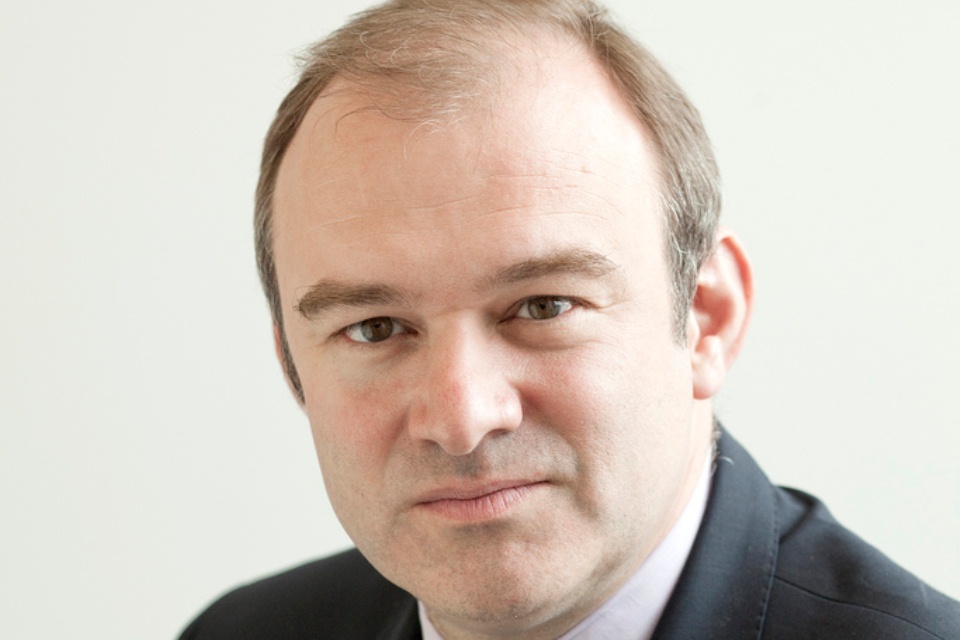Reform of the consumer protection regime
Introduction Thank you for inviting me here today. I welcome this opportunity to explain the thinking behind our recent decision to reshape…

Introduction
Thank you for inviting me here today. I welcome this opportunity to explain the thinking behind our recent decision to reshape the consumer protection landscape.
Let me say straight out that I am well aware of the cuts in budget that many of you are being asked to contemplate. But I am also well aware of the vital work you do, protecting consumers against rogue traders and scam merchants.
So as we have reviewed the current arrangements, our guiding principle has been to protect the front line.
The unavoidable truth is that Trading Standards has to shoulder its share of the pain of deficit reduction - along with everyone else. So the question is, can we do more for less?
Reform proposals
We believe the answer is yes. As things stand, consumers are represented by a bewildering array of public, private and voluntary bodies, with overlapping responsibilities.
Each individual organisation does a very good job and is highly regarded. But, taken together, they form a complex landscape that is difficult for consumers to navigate.
General consumer law is enforced by the OFT and Trading Standards.
Consumer complaints are handled by a panoply of sector-specific bodies, as well as Citizens Advice and Consumer Direct.
Research and advocacy work is done by OFT, Consumer Focus and the sector bodies.
Information and education responsibilities are parcelled out among you all.
This duplication of effort inevitably leads to waste and inefficiency in the use of resources. In a time of substantial public spending constraint, we cannot, in all good conscience, ignore that.
Instead, we want to build a new model that strengthens front-line consumer services, while slimming down the complexity, confusion and waste that stems from having so many different organisations in the field.
So in future, Citizens Advice will take responsibility for consumer education, information and advocacy services, as well as the Consumer Direct helpline.
And Trading standards will be the lynchpin of our new model, taking on responsibility for enforcing almost all consumer law from the Office of Fair Trading.
The benefits
Trading Standards and Citizens Advice both enjoy high levels of public awareness and public trust. This is a significant benefit as we strive to bolster front-line protection and improve clarity, so people know where they can go for help.
We believe the streamlined model we are designing will boost consumer protection while making the public’s money work harder.
Local threats to fair trading will continue to be handled by local authorities. But national threats will now increasingly be addressed through dedicated, expert teams within Trading Standards, with their work co-ordinated nationally.
You don’t need me to tell you that rogue traders and con artists don’t respect local authority boundaries.
And just as the world has changed, we must too. So we can continue to protect the most vulnerable - when the con man isn’t just knocking at his victim’s door, but also phoning, emailing and using international direct email.
Without effective national enforcement, consumers will suffer; incentives for compliance will be undermined; and fair competition will be threatened. We cannot afford this damage to our economy.
The finances
Now I know you are all asking yourselves - how is a bigger role for Trading Standards going to be funded?
Clearly, an element of national funding will be needed to create the networks that will bring councils together to tackle the bigger, cross-border cases.
We are also looking at transferring funding to Trading Standards from the OFT for internet enforcement, and a range of other national enforcement activities against rogue traders.
But let me make it clear that this increase in available funding does not replace the duty of your own local authorities to support Trading Standards adequately.
I know, of course, that your budgets are under pressure. That’s exactly why these reforms must be accompanied by a major push to unlock substantial efficiency savings.
But national funding will ensure that critical capacity to tackle tough cross-border cases remains, and is increased.
The only strings attached will be that the money must be targeted on broader projects that respond to a national threat. And it must complement work already happening, rather than being seen as new funding for current projects.
Beyond that, Trading Standards and local authorities will have much more discretion over how funds are allocated and spent. This is localism in action.
Micro-management by central Government should become a thing of the past. We are transferring funding and responsibility to the front line because we believe that is where local services are managed best.
You are the experts, after all, and you know best how resources should be targeted to protect the public from scams, con artists and rogue traders.
So we will work with all of you; the Trading Standards Institute; and Local Government Regulation, to develop a new framework that puts you in the driving seat.
Conclusion
That is our priority in the months ahead. Not just to preserve the excellent standards of Trading Standards in what is undoubtedly difficult climate - but to take it to a higher, more ambitious, level.
One where resources are allocated where they are needed most. One that harnesses the ingenuity and know-how of Trading Standards Officers to unlock substantial efficiency savings. And one that equips Trading Standards to stand right in the front line of protecting consumers.
I believe you are up for this challenge. And I know you are committed to making a success of it. I look forward to working on this joint task in the months ahead.
Thank you.